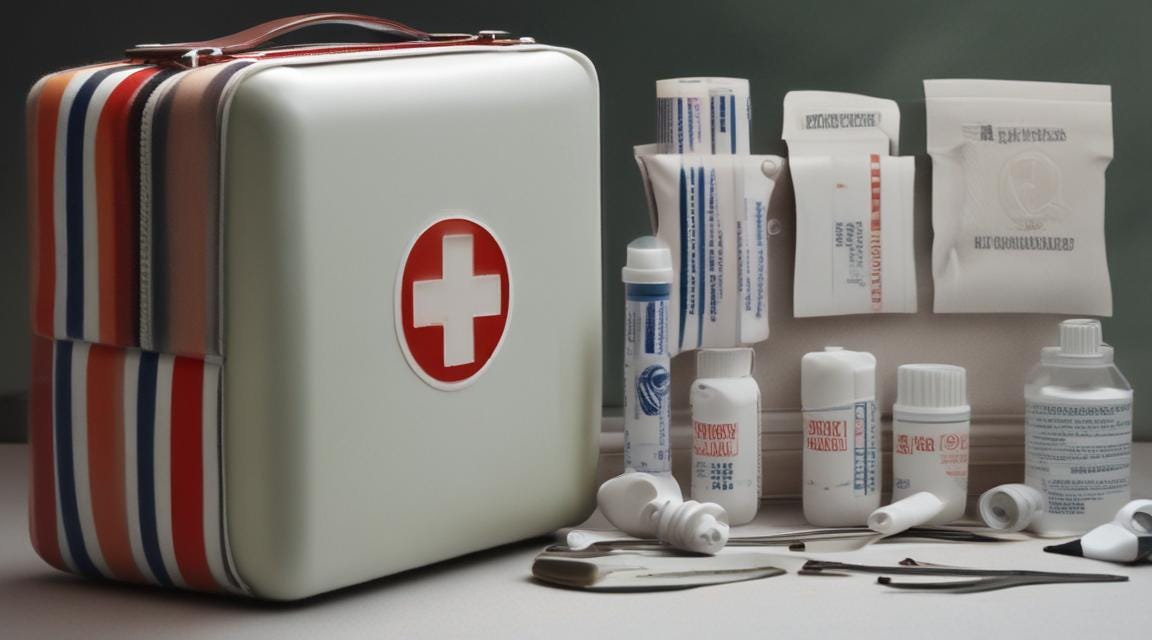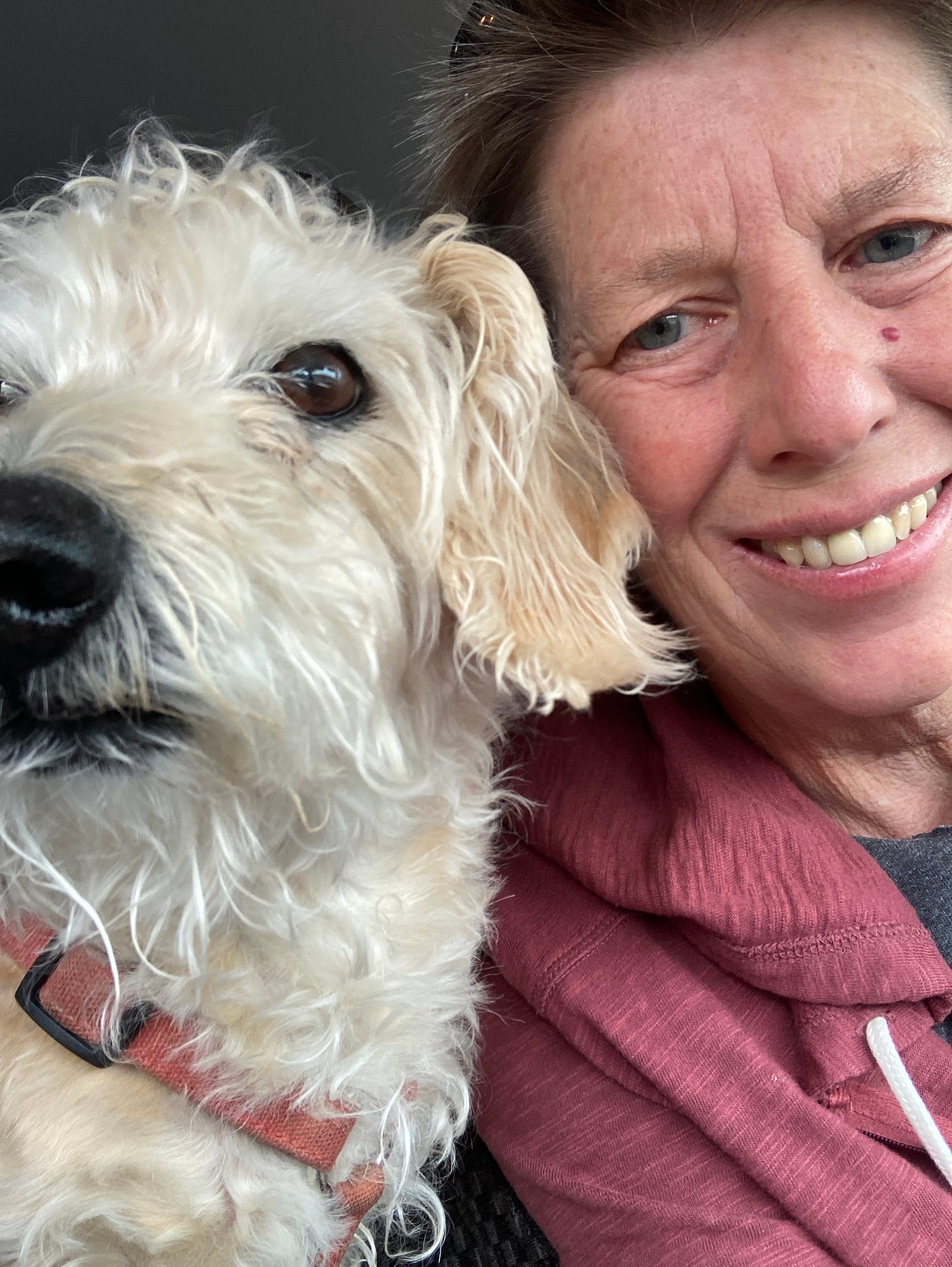Emergency Toolkit for Times of Despair
personal and collective tools to get us through these times
July 21, 2024 / Full Moon
These days I’m not sure how to write about much else other than the end of the world (as we know it). The collapse of systems and our environment is in-our-face. To avoid this truth feels irresponsible and a spiritual by-pass. Yet it’s never been more important to practice nourishment, self-care, and collective care.
This full moon I humbly offer you an Emergency Toolkit for Times of Despair. The Personal Tools have been central to keeping some semblance of my own sanity; the Collective Tools are perhaps the only way we will make it through this time. I don’t say that from fear but from compassionate realism. I'm very hopeful that when we use these as navigational guides for this pivotal period in history, we’ll come out better on the other end.
PERSONAL TOOLS
1) Time With Nature
We are never not in Nature, for we are a part of Nature. But what can help is intentional time with the natural world. You don’t have to drive hours to get to a state park – just walk out your door and make a connection with whatever you find right there, even if that’s simply a scrappy dandelion fighting its way through a crack in the pavement. Our Earth Mother has so much to teach us and so much love to share with us every second of our lives. The more we create intentional times to remember this truth, the more we can fill ourselves up with true nourishment and cultivate our innate strength.
2) Create Something. Anything.
A drawing. A poem. A pot of stew. A little dance. An arrangement of flowers. Creativity reminds us that we are not powerless, that we have agency, that even in the most difficult times there is a fire within that needs to be stoked and expressed. Our creativity also reminds us that we have an infinite and often surprising capacity to come up with new ways to overcome challenges.
3) Be With Your Beloveds
Our time together on this planet is limited and sometimes much shorter than we expect. Today – call or text or send a postcard to one of your beloveds. I mean it, today! Don’t wait. Even better, get together in person for a walk or cup or tea or a song. No agenda, only presence and love.
COLLECTIVE TOOLS
1) Slow down / De-growth
We’ve gotten so used to thinking we can buy almost anything we want, we can go wherever we want, and that ever-increasing productivity is the ticket to wealth. This collective overconsumption is killing us, literally, and it’s built into economic systems and policies that uphold them. One pathway to a sustainable planet is “De-growth.” As this fascinating article says, this requires societies “to abandon the idea that the percentage change in gross domestic product is an accurate indicator of progress, and instead learn to live better while producing less.”
Learn more about the DeGrowth movement on these two great Substack newsletters:
As a starting point, consider how you might use and buy less and support others in your community to do so. Here’s one simple example. In my area we have the option to shop at a “Zero Waste” store, Soap Santa Fe. You bring in your plastic bottles and re-fill them with high quality products like shampoos, lotions, and laundry detergent, greatly reducing the amount of single-plastic containers in circulation. If you don’t have something like that, look for groceries stores that have a bulk section where you can fill up your own containers.
2) Get hyper-local
As global supply chains are disrupted, we need to learn to depend on local sources of essential goods. This requires significant changes in our lifestyle and choices, but that doesn’t have to equate with “sacrifice.” The more we strengthen our local food and energy networks, the more we’ll discover the joy of fresh and wholesome foods, living in just-enough-ness, and confidence in relying on renewable energy sources. A few resources:
The Morris Model -- an award-winning group made up of partner organizations in Morris, MN, working together towards a shared vision of advancing a sustainable community
3) Help each other
Corporations don’t care about us. They care about their profit. Governments may try to care but are compromised by corruption and sheer size. At the end of the day, the one thing we can truly count on is each other. Mutual aid is a tried and true practice that is about creating networks of care and generosity to meet the immediate needs of community members. It prioritizes solidarity over charity, aspiring to bring people together in a common struggle rather than letting individuals fend for themselves. Here’s a helpful article: How to create a mutual aid network
There’s one more Bonus Tool, which shouldn’t surprise you if you’re familiar with my work – a Contemplative Practice. We are only as free as our minds allow us to be, and a contemplative practice is one of the most powerful ways to develop a liberated and compassionate mind and heart, and to know how to skillfully work with fear when it arises (and it will a lot in the days to come).
I’d love to hear what you think of this Toolkit…. What would you add to it?
For a deeper dive into current events from a more explicitly Buddhist and political perspective, check out my latest column in Buddhist Door Global: Radical Openness in Volatile Times.
Need some Guidance & Encouragement?
I offer one-to-one Guidance and Encouragement (G+E) sessions by Zoom on a sliding scale basis. G+E calls are a unique blend of mentoring, resource connections, and spiritual guidance (if you are open to it), customized to your needs. While I draw on some elements of traditional coaching, I generally don’t use that term as I tend to center other approaches such as cultural frameworks, presence, and spiritual accompaniment.
G+E sessions are especially useful when you’re in a transitional time (shifting careers, changes in relationships, moving to a new area, etc.) and are seeking support to navigate these changes in the most beneficial way.
G+E sessions are also about walking with you as we find our way through these transformational times. Something more beautiful is waiting on the other side for all of us, I have faith in that. These sessions are a means of co-creating that future.
How to appreciate a writer…
If you appreciate these offerings and would like to support my ability to have more time to work on my writing, here are a few suggestions:
Become a paid subscriber or give a one-time donation. All the writing on this site is freely offered, there are currently no paywalls here. This is intended to be a space of generosity rather than transactions. If you feel moved to offer something in return, paid subscriptions and donations are a meaningful way to support my livelihood as a writer.
Check out my book, Work That Matters: Create a Livelihood that Reflects Your Core Intention and/or tell others about it.
“Like” this post by tapping the heart icon, share it on Substack Notes or other social media, and/or send to a friend.
Also please check out my other Substack: Postcards from New Mexico
Thank you — I truly appreciate your support, and so does Lucy the rescue dog!







This is just what we need at this moment. Thank you, Maia. I'm excited about these approaches. I'm lucky to live in Hawaii, surrounded by nature and with some separation from the chaos of the mainland.
A covered porch with a rocking chair is great if you can swing it. I unfortunately don't have one. I have a deck though! I love coffee on the deck early in the morning. Unfortunately, sometimes my deck chairs are dew-covered that early :-(
If my self-discipline is really in order, I'll do coffee on the deck with no phone, no book, and no computer. That's when nature really talks to me!